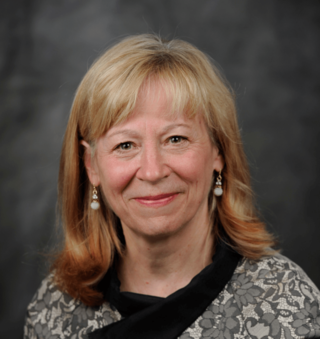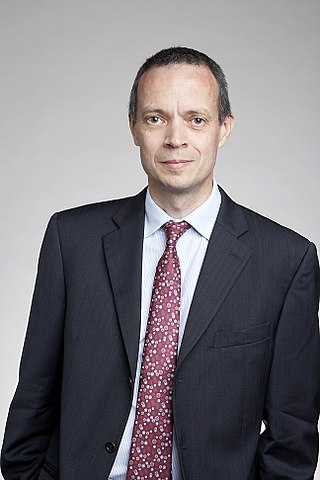
Soft matter or soft condensed matter is a subfield of condensed matter comprising a variety of physical systems that are deformed or structurally altered by thermal or mechanical stress of the magnitude of thermal fluctuations. These materials share an important common feature in that predominant physical behaviors occur at an energy scale comparable with room temperature thermal energy, and that entropy is considered the dominant factor. At these temperatures, quantum aspects are generally unimportant. Soft materials include liquids, colloids, polymers, foams, gels, granular materials, liquid crystals, flesh, and a number of biomaterials. When soft materials interact favorably with surfaces, they become squashed without an external compressive force. Pierre-Gilles de Gennes, who has been called the "founding father of soft matter," received the Nobel Prize in Physics in 1991 for discovering that methods developed for studying order phenomena in simple systems can be generalized to the more complex cases found in soft matter, in particular, to the behaviors of liquid crystals and polymers.
Jacob Klein, is the Herman Mark Professor of Soft Matter Physics at the Weizmann Institute in Rehovot, Israel. He is well known for his work in soft condensed matter, polymer science and surface science.
Ruth Marion Lynden-Bell, FRS is a British chemist, emeritus professor of Queen's University Belfast and the University of Cambridge, and acting President of Murray Edwards College, Cambridge from 2011 to 2013.
The Harrison-Meldola Memorial Prizes are annual prizes awarded by Royal Society of Chemistry to chemists in Britain who are 34 years of age or below. The prize is given to scientist who demonstrate the most meritorious and promising original investigations in chemistry and published results of those investigations. There are 3 prizes given every year, each winning £5000 and a medal. Candidates are not permitted to nominate themselves.

Monica Olvera de la Cruz is a Mexican born, American and French soft-matter theorist who is the Lawyer Taylor Professor of Materials Science and Engineering and Professor of Chemistry, and by courtesy Professor of Physics and Astronomy and of Chemical and Biological Engineering, at Northwestern University.

Julia Mary Yeomans is a British theoretical physicist active in the fields of soft condensed matter and biological physics. She has served as Professor of Physics at the University of Oxford since 2002.

Geraldine Lee Richmond is an American chemist and physical chemist who is serving as the Under Secretary of Energy for Science in the US Department of Energy. Richmond was confirmed to her DOE role by the United States Senate on November 5, 2021. Richmond is the Presidential Chair in Science and professor of chemistry at the University of Oregon (UO). She conducts fundamental research to understand the chemistry and physics of complex surfaces and interfaces. These understandings are most relevant to energy production, atmospheric chemistry and remediation of the environment. Throughout her career she has worked to increase the number and success of women scientists in the U.S. and in many developing countries in Africa, Asia and South America. Richmond has served as president of the American Association for the Advancement of Science, and she received the 2013 National Medal of Science.
Anita Mehta is an Indian physicist and Leverhulme Visiting Professor at the University of Oxford.

Benjamin Guy Davis is Professor of Chemical biology in the Department of Pharmacology and a member of the Faculty in the Department of Chemistry at the University of Oxford and a Fellow of Pembroke College, Oxford. He holds the role of Science Director for Next Generation Chemistry (2019-2024) at the Rosalind Franklin Institute.

The Department of Chemistry is the chemistry department of the University of Oxford, England, which is part of the university's Mathematical, Physical and Life Sciences Division

David John Wales is a professor of chemical physics in the Department of Chemistry at the University of Cambridge.
Susan Elizabeth Gibson is a British research chemist, Professor and Chair in Chemistry and Director of the Graduate School at Imperial College London. Gibson is an expert in chemical synthesis and catalysis.

Andrew John Orr-Ewing is a British chemist and Professor of physical chemistry at the University of Bristol. His work investigates the mechanisms of chemical reaction in both the gas and liquid phases and has used ultrafast laser spectroscopy to observe the effects of solvents on molecular reaction and the dynamics of photodissociation.

Klaas Wynne is a Professor in the School of Chemistry at the University of Glasgow and chair of Chemical Physics. He was previously a professor in the Department of Physics at the University of Strathclyde (1996–2010).
Charlotte Williams is a Professor of Inorganic Chemistry at the University of Oxford. Her research focuses on the synthesis of novel catalysts with an expertise in organometallic chemistry and polymer materials chemistry.
Kim E. Jelfs is a computational chemist based at Imperial College London who was one of the recipients of the Harrison-Meldola Memorial Prizes in 2018. She develops software to predict the structures and properties of molecular systems for renewable energy.
Helen H. Fielding is a Professor of physical chemistry at University College London (UCL). She focuses on ultrafast transient spectroscopy of protein chromophores and molecules. She was the first woman to win the Royal Society of Chemistry (RSC) Harrison-Meldola Memorial Prize (1996) and Marlow Award (2001).
Rosalind Jane Allen is a soft matter physicist and Professor of Theoretical Microbial Ecology at the Biological Physics at the Friedrich-Schiller University of Jena, Germany, and (part-time) Professor of Biological Physics at the University of Edinburgh, Scotland She is a member of the centre for synthetic biology and systems biology where her research investigates the organisation of microbe populations.
Andrew L. GoodwinFRS is a university research professor and professor of materials chemistry at the University of Oxford.

Sylvie Roke is a Dutch chemist and physicist specialized in photonics and aqueous systems. As a full professor she holds Julia Jacobi Chair of Photomedicine at EPFL and is the director of the Laboratory for fundamental BioPhotonics.









